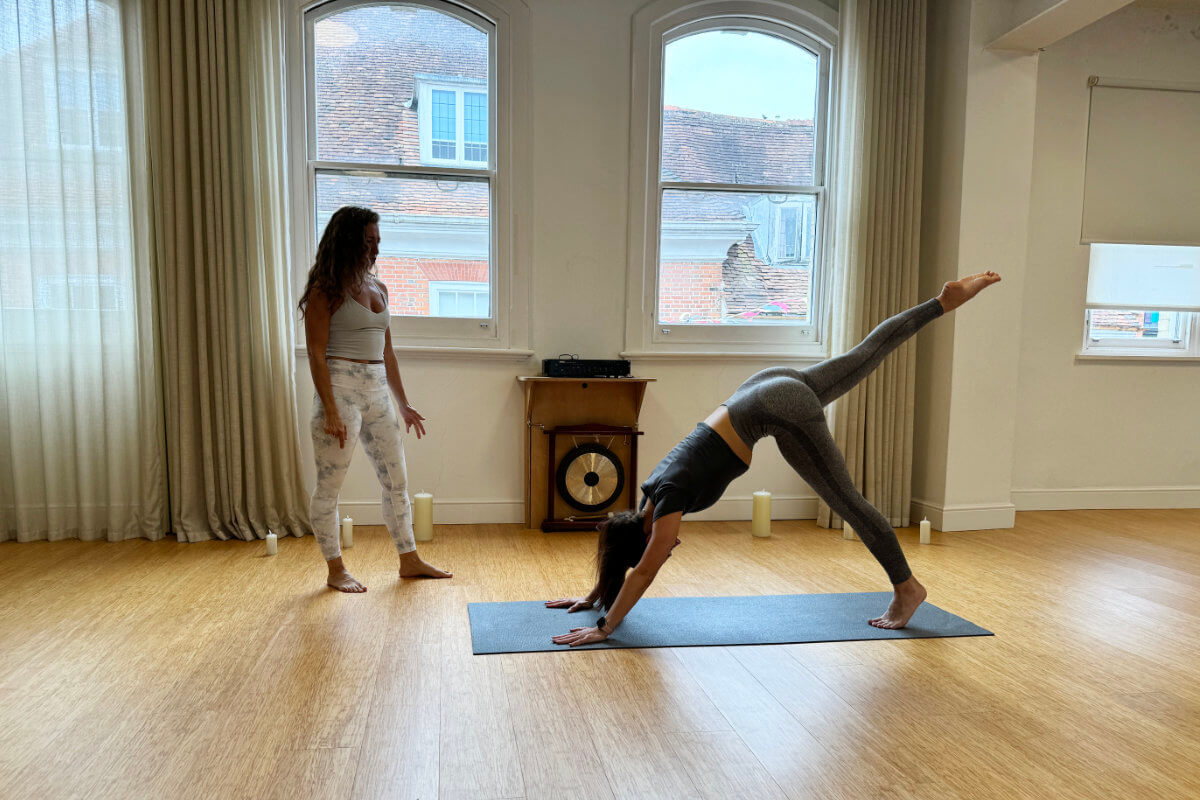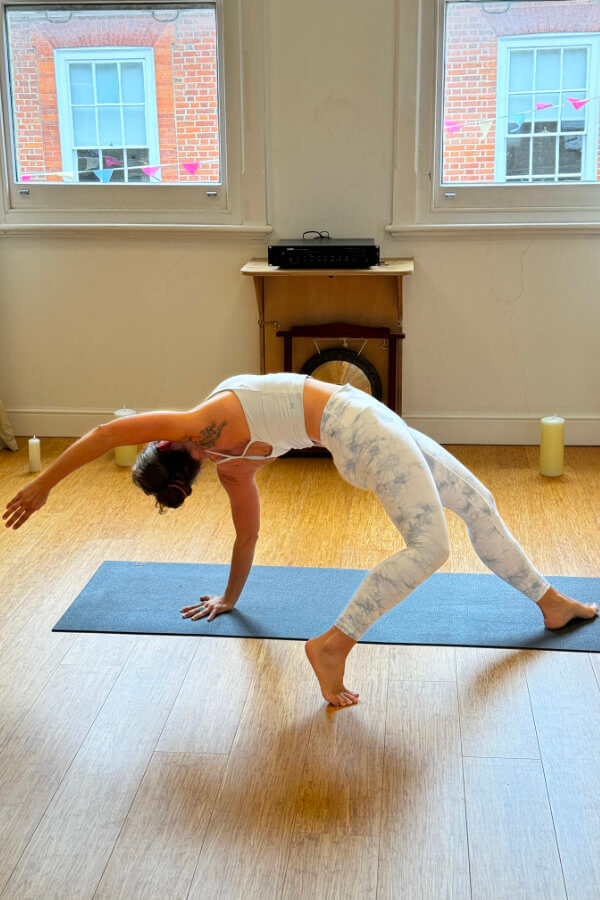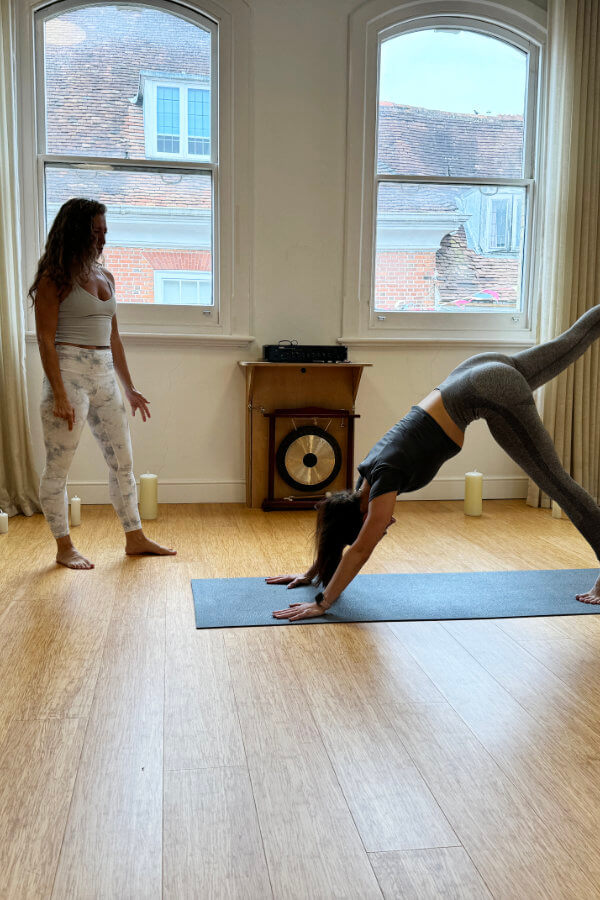Yoga Teacher Training is an opportunity to examine your own practice, so you can clarify and begin to share your passion and understanding.
It makes sense to train with your existing teacher - they know you and will be able to guide you in a way that makes most sense to you.
If your teacher doesn't offer a training programme, do your research, and find out about the overall focus and content of the training.
Make sure it resonates with you and covers the areas you enjoy the most.
Here are some common questions to ask yourself if you are thinking of embarking on the teacher training journey:
1) How much actual teaching practice is included?
Many newly qualified teachers find they still lack the confidence to set up and lead a room of students.
Good training courses will dedicate a high percentage of the contact hours to teaching practice, helping you hone your skills and learn how to mange your nerves so that you become a confident, knowledgable and powerful yoga teacher.
2) Is the course accredited?
Whichever course you choose, make sure that your qualification is recognised and that you will be properly insured to teach once you’ve graduated. That means your course will need to be certified and accredited. The most known worldwide is Alliance Yoga US or UK.
3) Do I like the teacher(s)?
You will be spending a good amount of time with your main teacher, so it helps if you connect them.
As I often say to prospective students: “you need to like the sound of my voice - you’ll hear a lot over the next weeks/months.”
Attend classes with the course leaders, so you get a feel for their teaching approach.
4) Does it feel right for me?
An authentic teacher won’t push you to sign up, but will want to know all about you and your expectations to ensure you’re making the right choice.
They should be happy to give you as much time and support as you need to reach a decision.
5) What is the true cost and quality of the course?
Some course may appear expensive, some course may appear less expensive. Consider what it is included in the different yoga teacher programmes.
Some courses are mostly online or demand a high level of individual research to make the required course hours.
For me nothing can replace human contact with experience senior teachers, combined with the mentoring support during the programme.
6) How many will be in my training group?
Some people prefer the anonymity of a large crowd, but small groups offer a more personal attention. Most courses are 200hrs, think about the opportunities you’ll have to ask questions, clarify any confusion or get personal assistance when you have 40 or 50 people in the group as opposed to 10 or 20 people.
Regardless the group size, you will get close to most of the graduates, so even if you are more introverted, you’ll get much more out of the teacher training course if it is a smaller group, in all levels.
7) Do the venue, dates and times work for me?
Consider how long the course is and how it is organised. Does the structure work for you, will you be able to get to the venue early without stressing out about traffic or transport?
Does the venue feels comfortable enough for you to spend long days focusing on the learning and practicing. Food is so important during a teacher training, it is important that you keep yourself fuelled during the day, with nourishing home made food (preferably) and plenty of snacks. Does the venue has the facilities for you to warm up or keep you food cool, space for general storage. Are there places around the venue for you to do some shopping? These little things add up to the hassle of preparing for it, or not.
8) Any additional costs or practicalities to consider?
Is the teacher training school providing the yoga props you might need during the programme? One of the things we cover in our programme is how to use the yoga props to help students to get into poses, support students with injuries or even how to deepen poses with the use of props.
During a yoga teacher training programme it is very likely that you will need these props; a strap or belt, bricks or blocks, blanket, bolster or meditation cushion. Consider how expensive it can be if you have to buy your own and also have to carry these around when you are in programme.
9) Will there be ongoing support?
Will you have access to the senior teachers outside the contract hours? Yoga can bring up loads of questions, so it helps to be able to contact with your course leaders. Some courses offer a mentoring programme or are simply very accessible and around the studio to answer any questions.
10) Opportunities to teach post-graduation?
Some programmes offer teaching assisting, cover opportunities, fixed slots or even just being able to help around the studio being involved in different activities.
These are all great opportunities to be involved in one way or the other to help you progress in the areas you need the most.
When we finish a yoga teacher training there’s so much we learn that we want to put in practice that sometimes can be overwhelming and many students loose the momentum and loose track of what to do. If you a place that can ground you, get you to take action and start your journey as a yoga teacher this can be just the breakthrough that so many students need to breakthrough the challenges of get going with teaching and keep doing the personal development work.
I run my Yoga Teaching Training course out of New Energy Yoga in Winchester, if you would be interested in finding out more, then click here for the full details of my programme.

 Login or Register
Login or Register





